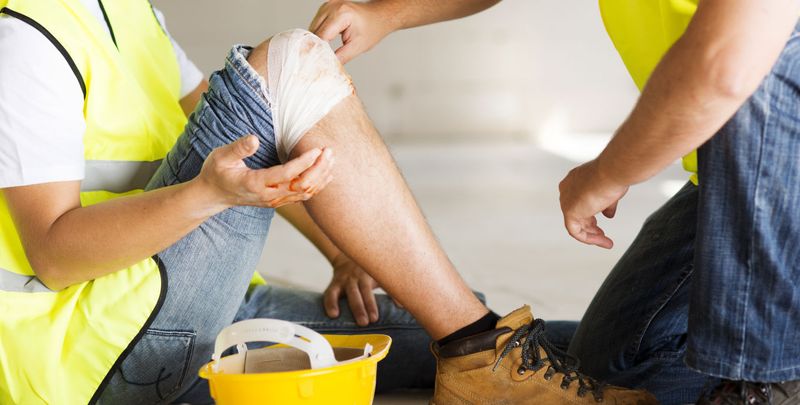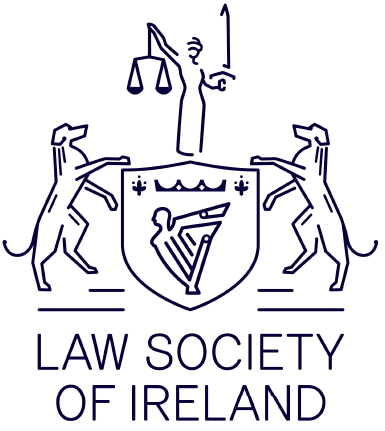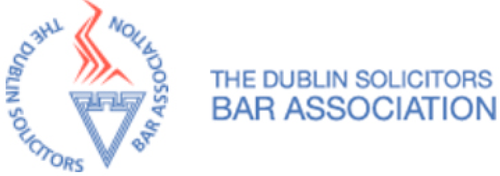Accident at work claims* seek compensation for the effects of a workplace injury on your life. The personal injury at work claim is for the impact of the workplace accident on your current and future life.
You may have crush injuries in a farm accident and be unable to work for a time. A construction site personal injury could be a back injury from manual handling, while a slip, trip and fall injury can happen in any workplace, from the office to the storeroom at the supermarket.
An employer owes you a duty of care. If they breach that duty of care, causing you a personal injury, you could have an accident at work claim*. A broken leg, a torn ankle ligament, and cuts, bruises and scarring can happen at work, and you may have a compensation claim.
O’Brien & Company Solicitors in Dublin can make your accident at work personal injury claim for compensation.
What is an accident at work claim*?
An accident at work claim* is the legal process you follow for compensation following a workplace injury. You can make a compensation claim for the effect of the workplace personal injury on your life.
The Health and Safety Authority, the HSA, issues guidelines on employer legislation and investigates workplace accidents in Ireland. The HSA issues a report on workplace accident statistics in Ireland every year, and in 2023, there was an 11% increase in the number of reported workplace accidents over the previous year. There were over 10,000 reported non-fatal accidents in the workplace, with 94% involving workers. Health and social work was the area with the highest incidence at 23% of all reported accidents at work. LINK
If you are injured in an accident at work, you may have a compensation claim. The compensation claim can be for the loss of income to the home, the need for full-time care and any costs and losses due to a personal injury at work.
O’Brien & Company personal injury solicitors in Dublin can make your injury in the workplace compensation claim.

Common accident at work claims*
Common accident at work claims* in Ireland range from the eye injury on a construction site to the slip, trip and fall when working in a hospital. You may be out of work, need to pay medical bills and make adaptions to the home after an injury at work.
You make the workplace injury claim* for the damages suffered today and the effect of the personal injury on your life in the future.
Types of accident at work claims* in Ireland:
Compensation for an Accident at work claim* in Ireland
Compensation for an accident at work claim* in Ireland could see you receiving the money to cover your costs and losses, as well as for the pain and other effects on your life, due to a breach of duty of care by your employer.
Your employer owes you a duty of care when you are at work. If you suffer a personal injury at work, it could cause you unnecessary suffering and, in some cases, put your life in danger.
The compensation differs from claim to claim. You could be incapacitated for life and need full-time care due to the personal injury, or you may be out of work and lose income to the home.
There is not one fixed amount of compensation for a personal injury in the workplace, and you seek compensation for your losses, known as damages, in a claim.
In Ireland, a compensation claim for personal injury combines two types of damages.
What are damages in an accident at work claim*?
The damages in an accident at work claim* cover the immediate effects on your life and the impact on your future life. You claim damages for the pain and suffering, as well as any loss of income following a personal injury.
If you need to make adaptations to the home and car and make other changes to your life, you can claim compensation for the costs from your employer.
The two types of damages in a workplace accident claim in Ireland are:
What evidence do I need for an accident at work claim*?
The evidence you need for an accident at work claim* ranges from photographs to medical reports, workplace accident reports, and eyewitness accounts. The more evidence you gather, the better it will be for your personal injury claim.
It is always good to write down what happened and to gather evidence as soon as possible in any personal injury compensation claim. In many circumstances, this may not be possible, but you can still form a compensation claim with the help of your solicitor.
Evidence to gather for a workplace personal injury claim:
Any evidence you can gather will only help your compensation claim. The employer may try to dispute your personal injury claim, but the evidence could help you win compensation.
O’Brien & Company Solicitors will help you form the personal injury claim and assist in gathering evidence and processing it.
A fatal workplace injury claim*
A fatal workplace injury claim* in Ireland is when the family and loved ones left behind claim compensation for their loss. The loss of a loved one can leave the family and dependents without an income and could put a lot of pressure on everyone.
Fatal workplace accidents happen in Ireland very often. The reality for the family is the loss of a loved one and the financial security they brought to the home.
Types of fatal workplace accidents in Ireland:
The fatal workplace accident will affect many people, from the children of the bereaved to the shock for family members.
Family left behind after a fatal workplace accident are known as dependents of the loved one. A dependent can claim compensation when a loved one is killed at work.
Dependents in a fatal accident at work claim* in Ireland:
If the employer breached their duty of care, causing the death of a loved one, then you may have a fatal accident at work claim*.
O’Brien & Company Solicitors in Dublin have the experience to work with the family of the deceased and to help make the fatal workplace accident claim.
What is Employers Liability in Ireland?
Employers Liability in Ireland is the duty of care an employer has to all employees while they are at work.
The employer at the local supermarket has a duty of care to employees, as does the major pharmaceutical company to anyone who works at the manufacturing plant and in the R&D lab.
The responsibility for employer liability ranges from keeping the place of work safe for all employees and to implement all health and safety legislation.
A breach of the employers liability to employees may lead to an accident and a personal injury to you. The poorly maintained machinery, the badly lit warehouse, the broken floor tiles, and the lack of safety equipment can all lead to an accident and injuries from a fractured ankle to a head injury and death.
O’Brien & Company Solicitors in Dublin have the experience in Employers Liability to get you compensation for the workplace injury.
Make an Accident at work claim* today
Make an accident at work claim* today by contacting O’Brien & Company Solicitors in Dublin.
We have the experience in personal injury compensation and can fight your accident at work claim* until you get the compensation you deserve.
You are the one with PTSD, the nerve damage, and are out of work with bills to pay, and you should get the compensation.
O’Brien & Company Solicitors have the team in place to make the compensation claim and will be with you at every step of the claims process.
Contact O’Brien & Company Solicitors to make your accident at work claim* today.
Contact us now
in confidence.
O’Brien & Company Solicitors has a wealth of experience and a history of success in personal injury and medical negligence cases.
We pride ourselves on achieving the best results for our clients whilst at the same time making everything as straightforward and clear for you as possible.


